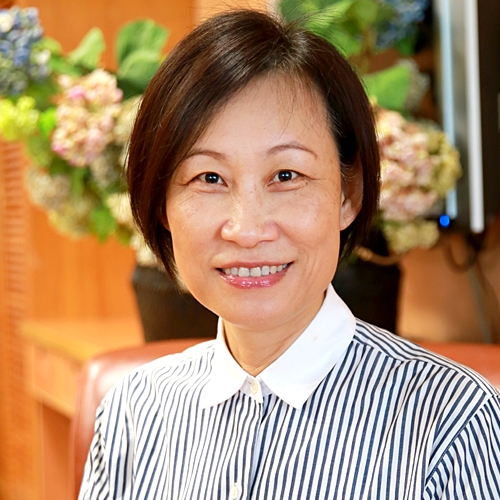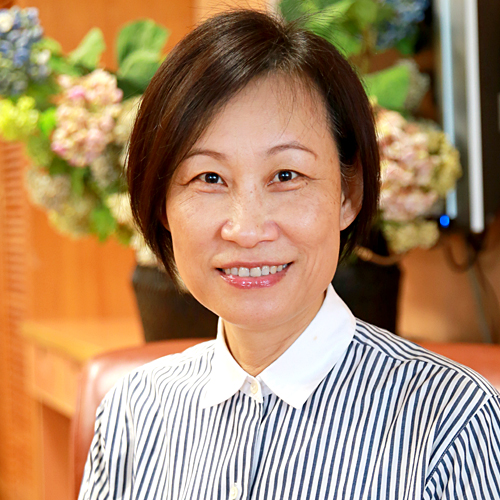 GOLD Learning Speakers
GOLD Learning Speakers


Shu-Fang Wang, PhD, RN, CNM, IBCLC
- Speaker Type: GOLD Lactation 2019, Communication Skills Lecture Pack , Communications Skills Lecture Package 2020
- Country: Taiwan
Biography:
I am the mother of three breastfed children. Certified as an IBCLC in 2007, the next year, in 2008, setup the first IBCLC clinic in the medical center in Taiwan. As the President of the Chinese Lactation Consultant Association from 2015 till now. I have been teaching in the university for 30 years and as a part-time associate professor in the Department of Midwife & Women Health, National Taipei University of Nursing and Health Science, Taiwan now. After I retired from the university, I fund and as the CEO of WELL International Co., aims to promote the three-stages certification of profession lactation support competence.
CE Library Presentation(s) Available Online:
B Theory of Breastfeeding: Baby-Breast-Brain-Backup Axis (Mindfulness-Based Stress Reduction)
Breast is best. The World Health Organization recommends that exclusive breastfeeding for at least the first six months after birth. Breastfeeding 10 times a day and each lasts for 30 minutes for 180 days; that sum up to 54,000 minutes devoted for "healthy next generation". Wang (2008) propose the B theory of breastfeeding: Baby-Breast-Brain-BackUp axis, an interpretation and application of the lactation mechanism with a new perspective. Breastfeeding is involving physical, psychological and social aspects of life. How does the lactation consultant based on counseling skills, apply the Mindfulness-Based Stress Reduction (MBSR) to empower breastfeeding women, who can activate the positive brain feedback, prompt oxytocin reflexes, and bravely express individual needs. A breastfeeding friendly society therefore be fostered and the breastfeeding family could truly enjoy their breastfeeding goals & lives.
Presentations:
29 | Hours / CE Credits: 27.0
| Viewing Time: 8 Weeks
Presentations:
1 | Hours / CE Credits: 1
| Viewing Time: 2 Weeks
Presentations:
5 | Hours / CE Credits: 5
| Viewing Time: 6 Weeks
Hours / CE Credits: 1 (details) | Categories:
(IBCLC) Education and Communication, (IBCLC) Psychology, Sociology, and Anthropology, Mindfulness & Stress Reduction in Breastfeeding
This Presentation is Currently Offline
Communications/Connection and Conflict Resolution Within the Extended Family
One of the biggest differences between Eastern culture and Western culture the tight connection of family. In Eastern culture, there is a traditional culture for postpartum practice called “doing the month (DTM)”. Including dietary taboos, lifestyle restriction, such as No hair washing, no bathing, and also parental self-regulation. This kind of confinement is very difficult for the young generation, and it causes a lot of conflicts within family. Based on affection exchange theory(AFE), by using active listening skills to accept the expressions of both parties. To praise ANY behavior whichever is nicer to the other. To facilitate the mutual experiences on positive feelings in the same living target, connecting and caring all people’s needs on site. Acting is considered as a connector, to emphasize and to enlarge the two parties' commonality. Hence, the consensus building and the making the feasible strategies for a change are necessary.
Communications/Connection and Conflict Resolution Within the Extended Family
One of the biggest differences between Eastern culture and Western culture the tight connection of family. In Eastern culture, there is a traditional culture for postpartum practice called “doing the month (DTM) ”. Including dietary taboos, lifestyle restriction, such as No hair washing, no bathing, and also parental self-regulation. This kind of confinement is very difficult for the young generation, and it causes a lot of conflicts within family. Based on affection exchange theory(AFE), by using active listening skills to accept the expressions of both parties. To praise ANY behavior whichever is nicer to the other. To facilitate the mutual experiences on positive feelings in the same living target, connecting and caring all people’s needs on-site. Acting is considered as a connector, to emphasize and to enlarge the two parties' commonality. Hence, the consensus building and the making the feasible strategies for a change are necessary.
Presentations:
5 | Hours / CE Credits: 5
| Viewing Time: 6 Weeks
Hours / CE Credits: 1 (details) | Categories:
(IBCLC) Education and Communication, Counseling Skills










